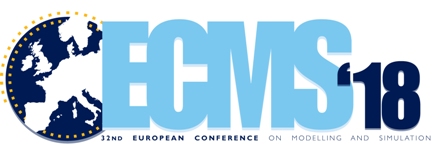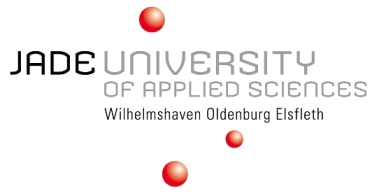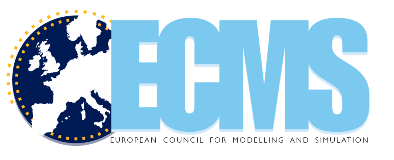
ISSN 2522-2422 (ONLINE) - ISSN 2522-2414 (Print) - ISSN 2522-2430 (CD-ROM)
ECMS 2018
May 22nd
- May 25th, 2018
Wilhelmshaven, Germany
Keynote speakers
Jade Hochschule of Applied Science Wilhelmshaven
©Jade
University

Banter See, Haven, Part of the city
©Jade University

Kaiser -Wilhelm-Bridge
©Jens Werner

Kaiser -Wilhelm-Bridge
©Jens Werner

Kaiser -Wilhelm-Bridge
©Jens Werner
We are happy to announce our 2 keynote speakers
|
Thomas Bäck is full professor of computer science at the Leiden Institute of Advanced Computer Science (LIACS), Leiden University, The Netherlands, since 2004. He received
his PhD in Computer Science (under supervision of Hans-Paul Schwefel)
from Dortmund University, Germany, in 1994, and then worked for the
Informatik Centrum Dortmund (ICD) as department leader of the Center
for Applied Systems Analysis. From 2000 - 2009, Thomas was President
of NuTech Solutions GmbH and CTO of NuTech Solutions, Inc. In his
work with industrial partners in the industry 4.0 domain, he
provides data mining, optimization software and services to
companies such as, e.g., BMW, Daimler, Ford, Honda, Tata Steel, and
KLM. |
Thomas Bäck
has more than 300 publications and authored a book on evolutionary
algorithms, (Evolutionary Algorithms: Theory and Practice).
He is
co-editor of the Handbook of Evolutionary Computation and the
Handbook of Natural Computing, and co-author of the book
Contemporary Evolution Strategies (Springer, 2013). He is editorial
board member of a number of journals and has served as program chair
for major conferences in evolutionary computation. He received the
best dissertation award from the Gesellschaft für Informatik (GI) in
1995 and is an elected fellow of the International Society for
Genetic and Evolutionary Computation for his contributions to the
field. In 2015, he received the IEEE Evolutionary Computation
Pioneer Award for his contributions in synthesizing evolutionary
computation.
Algorithms for Simulation-Based Optimization Problems
Many
industries use simulation tools for virtual product design, and there is a
growing trend towards using simulation in combination with optimization
algorithms for tuning simulation input parameters. The requirements for
optimization under such circumstances are often very strong, involving many
design variables and constraints and a strict limitation of the number of
function evaluations to a surprisingly small number (often around one
thousand or less).
Tuning optimization algorithms for
such challenges has led to very good results obtained by variants of
evolution strategies and by variants of Bayesian optimization algorithms.
Evolutionary algorithms are nowadays standard solvers for such applications.
In the presentation, sample cases from industry are presented, and their
challenges are discussed in more detail. Results of an experimental
comparison of contemporary evolution strategies on the BBOB test function
set for a small number of function evaluations are presented and discussed,
and further enhancements of contemporary evolution strategies are outlined.
Our practical examples are motivated
by industrial applications. A typical challenge is to find innovative
solutions to a design optimization task. Based on a suitable definition of
innovative solutions, an application of this concept to an airfoil design
optimization task is discussed in the presentation.
Discussing
these applications and the variants of evolution strategies applied, the
capabilities of these algorithms for optimization cases with a small number
of function evaluations are illustrated.
_______________________________________
Building Adaptive Data Mining
Models on Streaming Data
in Real-Time, an Outlook on
Challenges,
Approaches and Ongoing Research
Advances in hardware and software, in the past two decades have enabled the capturing, recording and processing of potentially large and infinite streaming data. As a consequence the field of research in Data Stream Mining has emerged building Data Mining models, workflows and algorithms enabling the efficient and effective analysis of such streaming data at a large scale. Application areas of Data Stream Mining techniques include real-time telecommunication data, telemetric data from large industrial plants, credit card transactions, social media data, Smart Cities, IoT, etc. Some applications allow the data to be processed modelled and analysed in batches by traditional Data Mining approaches. However, others require the model building and analytics to take place in real-time as soon as new data becomes available i.e. to accommodate infinite streams and fast changing concepts in the data. This talk discusses challenges, barriers, opportunities and recent and current research approaches towards innovative solutions in Data Stream Mining.
Page
created by M.-M. Seidel
© Copyright ECMS - All Rights Reserved


